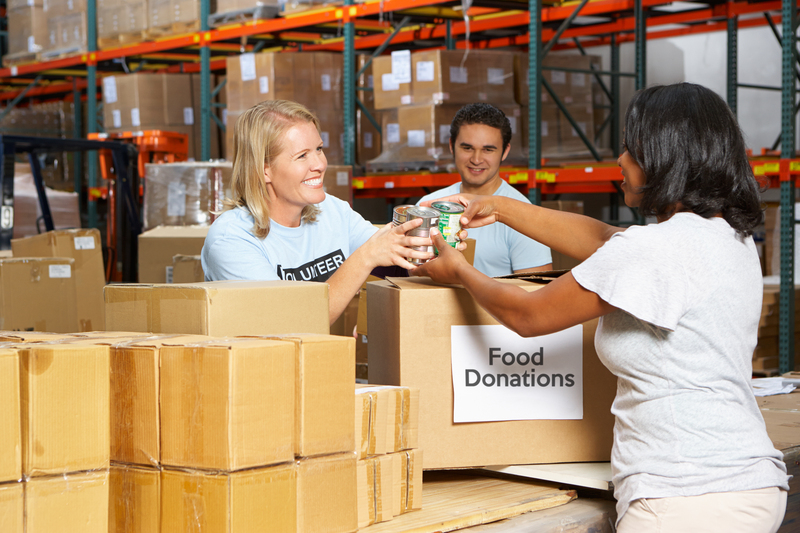Eco-Friendly Recycling Strategies for Educational Institutions
In our rapidly evolving world, the push for environmental sustainability is more urgent than ever. Educational institutions--from elementary schools to universities--hold a unique position in shaping eco-conscious generations. By embracing eco-friendly recycling strategies, schools and universities can lead by example, reduce waste, and teach crucial lessons about responsible resource management. In this comprehensive article, we explore effective recycling practices for schools and colleges, examine the benefits, and provide actionable tips to foster greener campuses.

Why Are Eco-Friendly Recycling Practices Vital for Educational Institutions?
Eco-friendly recycling strategies not only reduce the environmental impact of waste, but also help nurture eco-savvy students who carry sustainable habits into their communities. Educational institutions generate significant waste daily, including paper, plastics, electronics, and cafeteria leftovers. By integrating sustainable recycling initiatives, schools can dramatically reduce their carbon footprint and encourage a circular economy.
- Conservation of natural resources: Recycling reduces the demand for new raw materials, helping to preserve forests, water, and minerals.
- Decreasing landfill usage: Eco-friendly waste management strategies divert materials from landfills, minimizing pollution and land degradation.
- Educational impact: Hands-on recycling programs allow students to understand and appreciate the importance of resource conservation.
- Financial savings: Efficient waste sorting and recycling can lower disposal costs and sometimes generate revenue.
- Community leadership: Schools that pursue sustainable recycling initiatives inspire other organizations to adopt similar strategies.
The Environmental Impact of Institutional Waste
Studies show that the average school can generate thousands of pounds of waste each year. From administrative offices to cafeterias, the types and amounts of waste vary--but much of it is recyclable or compostable. Educational facilities are ideally placed to model comprehensive recycling systems, reducing pollution and greenhouse gas emissions linked to waste disposal.
Effective Eco-Friendly Recycling Strategies for Educational Institutions
Implementing green recycling initiatives in schools requires deliberate planning, community engagement, and ongoing education. Below, we detail several actionable approaches that can help institutions of all sizes succeed on their journey toward sustainability.
1. Comprehensive Waste Audits
Begin your journey with a thorough waste audit to analyze the types and volumes of waste the institution produces. Audit findings give a clear picture of where recycling efforts should be focused and provide a benchmark to track progress.
- Identify main sources of waste (cafeterias, offices, classrooms)
- Separate waste by category: paper, plastic, metal, glass, electronics, compostables
- Analyze which materials make up the largest portion of the waste stream
2. Introducing Campus-Wide Recycling Stations
Strategically placed recycling bins encourage responsible disposal. Use clear labels and color-coding for different materials (blue for paper, green for glass, yellow for plastics, etc.) to aid participation and prevent contamination.
- Place bins in high-traffic areas: cafeterias, common rooms, hallways, next to printers
- Opt for bins made from recycled materials when possible
- Regularly monitor and empty bins to maintain cleanliness
3. Implementing Paper Reduction and Recycling
The bulk of school waste often consists of paper. Digital transformation--aided by tablets, laptops, and online assignments--can significantly minimize paper use.
- Promote paperless administrative processes
- Encourage double-sided printing
- Use recycled paper supplies campus-wide
- Recycling drop-offs for outdated textbooks and class materials
4. Recycling Electronics and E-Waste Responsibly
Discarded electronics are a growing concern. Establish a clear protocol for recycling computers, printers, batteries, and cables in partnership with certified e-waste recyclers. This ensures toxic substances do not leach into the environment.
- Hold semiannual e-waste collection events for students and staff
- Donate usable electronics to local charities or community groups
- Provide information on the hazards of improper e-waste disposal
5. Composting Food Waste
School cafeterias often produce sizeable amounts of organic waste. Setting up composting infrastructure offers a sustainable solution and an educational opportunity.
- Use clear instructions for separating food waste
- Partner with local farms or gardening clubs to process compost
- Incorporate composted material into campus gardens
6. Partnering with Local Recycling Programs
Eco-friendly recycling strategies are often more successful through collaboration. Work with municipal recycling programs or green businesses to maximize resource recovery and access educational workshops.
- Organize recycling drives with community partners
- Participate in city- or county-wide recycling competitions
- Bring in expert speakers to boost student engagement
Fostering a Green Campus Culture
Building a truly sustainable school or college is about more than just installing recycling bins. A culture of sustainability encourages everyone--from students and teachers to maintenance staff and administrators--to play their part.
1. Curriculum Integration
Weave eco-friendly recycling education into lesson plans. Science, social studies, and even art classes can incorporate projects about the life cycle of materials and environmental stewardship.
- Organize "green days" focused on sustainability awareness
- Host workshops or classroom discussions on waste reduction
- Promote student-led research on improving campus recycling
2. Student-Led Green Initiatives
Empower students by forming Environmental Clubs or Recycling Committees responsible for raising awareness, monitoring recycling stations, and reporting on progress.
- Encourage peer education and mentorship programs
- Run inter-class or dormitory recycling competitions
- Showcase student art created from recycled materials
3. Staff Training and Involvement
Provide regular training for all staff members so they understand proper recycling procedures and can model best practices for students.
- Include recycling guidelines in staff handbooks
- Hold annual workshops on new recycling strategies
- Reward staff who excel in promoting recycling
Overcoming Common Recycling Challenges
Despite the benefits of sustainable recycling programs, institutions may encounter hurdles such as contamination of recyclables, lack of engagement, or logistical limitations. Addressing these challenges is key to long-term success.
1. Preventing Contamination of Recyclables
Mixing non-recyclable materials with recyclables can render entire batches unprocessable. Clear signage, consistent education, and bin monitoring are critical.
- Use pictorial labels to bridge language barriers
- Conduct periodic spot checks for compliance
- Share "success stories" to demonstrate effective recycling
2. Boosting Participation
Sustaining enthusiasm for eco-friendly recycling programs can be a challenge. Creating a sense of ownership and recognition helps keep students and staff on board.
- Offer rewards or recognition for outstanding participation
- Publicize recycling achievements in newsletters and assemblies
- Involve parents and alumni to broaden support
3. Allocating Resources Effectively
Budget constraints are a concern for many institutions. Focus initial efforts on areas generating the most waste, seek grants, or collaborate with local businesses for in-kind support.
- Apply for environmental or educational grants
- Partner with recycling companies for fundraising opportunities
- Start small and scale up as benefits become clear
Innovative Recycling Projects and Ideas
Forward-thinking schools and universities around the globe are making headlines with their creative sustainable recycling strategies.
- Zero-Waste Lunch Programs: Encourage students to use reusable lunch boxes and containers; educate about reducing single-use plastics.
- Recycled Art Fairs: Hold competitions and exhibitions featuring art created exclusively from recycled materials.
- Green Graduation Ceremonies: Use gowns made from recycled fabrics and digital invitations.
- Solar-powered Baler Machines: Integrate renewable energy to help process recycled cardboard and plastics on-site.
- Upcycling Workshops: Teach students how to transform old uniforms or equipment into practical new items.

Measuring Recycling Success
Institutional recycling efforts are most effective when performance is routinely evaluated. Monitor key metrics like total tons recycled, cost savings, student participation rates, and educational outcomes.
- Track monthly or quarterly recycling data
- Survey the school community on attitudes and knowledge
- Share results transparently to maintain momentum
The Future of Eco-Friendly Recycling in Education
As climate change and resource scarcity continue to challenge our world, educational institutions have a profound responsibility and opportunity to lead. Today's recycling efforts inspire tomorrow's changemakers. By adopting comprehensive, eco-friendly recycling strategies, schools and universities can create sustainable campuses and instill a deep-rooted respect for our planet.
Start with small, visible changes, engage your school community, and celebrate your achievements. In doing so, educational institutions can pave the way for a greener, cleaner, and more responsible future. The time for action is now--make your campus a shining example of eco-friendly recycling and sustainability for all to follow.